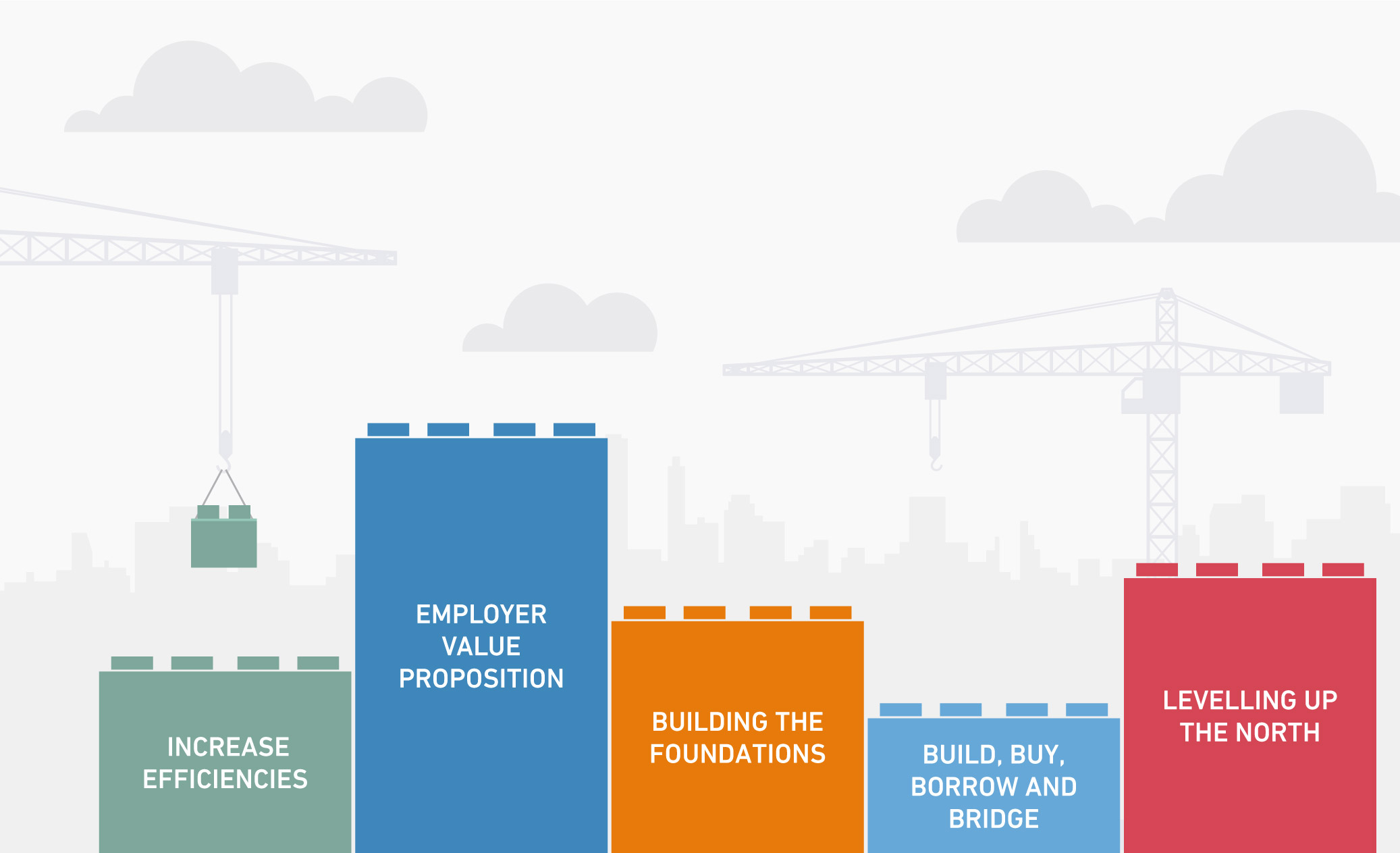
With a business model structured around attracting the best talent in the market, the HR and Procurement teams at Capgemini have been putting the building blocks in place to move to a Total Talent Management (TTM) approach across their business. So, what are the steps that the organisation is taking to prepare for this shift, and why are they doing it?
Working together to increase efficiencies
Today, Capgemini manages recruitment through several initiatives managed with different partners, including Experis. Alongside the core RPO and MSP (Recruitment Process Outsourcing and Managed Service Provider), Capgemini also has programmes for senior hires, early careers and those returning to work. Whilst these programmes work well independently, the silos between the different programmes create some inefficiencies, which could be reduced through the development of a TTM approach – helping the teams to work smarter rather than harder.
Neil Denton, Director of Recruitment at Capgemini, has been in his role for just over a year, bringing with him a focus on adding value to stakeholders across the business while streamlining recruitment processes. Central to his approach is close collaboration between HR and Procurement, helping to avoid the friction traditionally experienced between the two teams in other organisations when it comes to the management of permanent and temporary employee recruitment.
Adam McElhone, Category Manager for Professional Services and Neil’s Procurement counterpart, highlights that: “My team is focused on the right service at the right cost; Neil’s team is focused on getting the right people into the business and efficiency of service at the right costs. There could be some opportunity for friction, but we’re very aligned with needing to get the best people for the business. And by sharing ownership of the suppliers, we’ve created a strong alignment between the two departments.”
The importance of a strong Employer Value Proposition
In an organisation with varied recruitment needs like Capgemini, there are difficulties in presenting a single market proposition and approach without diluting the core brand.
Neil believes that TTM is critical: “For us, TTM is more around collaboration and understanding. It’s about having one really strong route to market where the brand takes the lead.”
Building the foundations
Whilst Neil and Adam are both clear on the potential benefits of TTM, they also recognise the importance of taking their time to do it properly. At the same time as working with their partners to refine how the RPO and MSP programmes are run, the recruitment team at Capgemini is taking the time to assess what TTM needs to deliver across the whole talent lifecycle for their organisation. Adam says, “We need to understand what form of TTM we want. There are a number of questions that we need to understand about the programme internally first before we start pushing out to suppliers. Because if we go out to tender and the idea isn’t fully formed, then it’s increasing the chance that the programme will fail.”
Build, Buy, Borrow and Bridge
The TTM framework comprises four key talent strategies: Build, Buy, Borrow and Bridge. With their strategies for Borrow and Bridge clearly outlined in the business, Capgemini will focus much of its attention over the coming months on Build and Buy.
At Capgemini, Building its own talent has become increasingly important as access to skilled technical people becomes more difficult. Across the global business, Capgemini has established its own university, providing a wealth of courses internally. The company also actively encourages employees to keep up with the latest developments in the marketplace. Learning and Development continues to be an area of significant investment for Capgemini, with a strong focus on digital platforms to help maximise learning opportunities across a geographically diverse workforce.
When it comes to Buy, Capgemini recognises the need to shift away from a historical focus on how many years’ experience an individual has, and more towards their capabilities and learnability. The company is also looking to increase its focus on ‘silver medallists’ after the interview process, working to understand what training a candidate who has 80% of the required capabilities might need to get them to the level of knowledge that they need to join the business.
Levelling up the North
In-line with the government’s increased focus on jobs in the North of England, Capgemini is also starting to see increased demand for talent outside London. Whilst the company remains guided by where its clients need the talent, both the recruitment and procurement teams are working closely with the business to manage the location of talent included in new projects.
“I think clients are responding well to the government message of rebalancing the need for talent across the UK, which means that we are also able to increase our support for this change,” says Neil. The impact of COVID-19 on the workforce is also likely to increase the willingness of clients to take on individuals who work remotely, increasing the potential for geographical spread of talent.